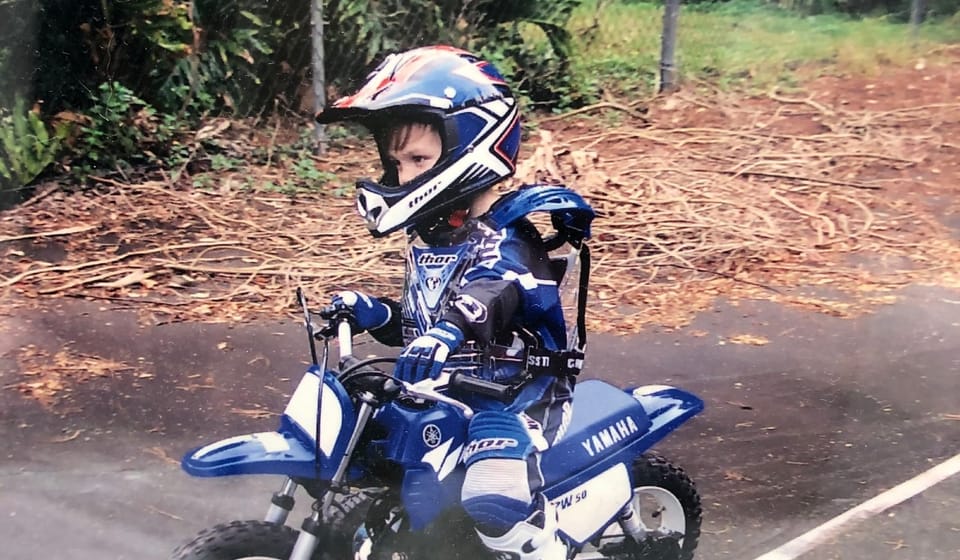How it Feels to be an Only Child

I used to resent being an only child. There was a time when I shoveled all the blame for my angst-ridden teenage years on the 'disadvantages' of growing up without siblings. Today, as I take a step back and reflect on my experience, the picture looks a lot different than it did when I was younger.
Only-Child Syndrome
The term "Only child syndrome" was first uttered in the late 19th century by Harvard educated developmental psychologist G. Stanley Hall, who described the situation of being an only child as "a disease in itself". Hall felt that only children were doomed to be selfish, maladjusted, lonely, and spoiled outliers in a functioning society. This conclusion was based in part by a small survey study done by another 19th century child psychologist, E. W. Bohannon, who asked 200 survey participants to describe any only children that they knew; 196 of the 200 participants said only children were spoiled brats, and by Hall's observation that many of the children he saw in his practice were children without siblings.
Hall's comment, bolstered by Bohannon's study, has cemented itself as a long-standing truism in modern society. In other words, only children were labelled narcissists (a term as cheap and overused as only-child syndrome) and swept under the rug by those who founded child psychology. Today's research has found no evidence to corroborate this. In fact, the APA– which, incidentally, was founded by Hall–does not officially recognize only-child syndrome as a clinical disease.
I'm not trying to dismantle the entirety of child developmental psychology with my (biased) opinion. I'd simply like to show that the reality is more nuanced. Just as it must be with siblings, there are both advantages and disadvantages to being the only kid in a household.
Challenges
I think there are two things I've struggled with as a consequence of growing up without siblings:
Conflict:
Conflict might be my least favorite thing in the world. I can't stand it. In fact, I avoid it to my detriment. When it comes time to stand up for myself or disagree with a stranger (or worse, a friend), I get flustered; my voice gets shaky, my thoughts scramble–most of the time I rationalize that it's not even worth it to speak up. As a result, I've let others dictate my actions and opinions for much of my life, and I've let simple differences balloon into relationship-shattering problems because of my unwillingness to address them.
While far from perfect, this year I've been slowly learning how to embrace those unpleasant moments and navigate them with honesty. Of course, the reasons for my conflict avoidance are complex and downright obscure at times, but I think it's fair to say that growing up without the presence of sibling rivalry on a daily basis may have contributed.
Really, I think my issues with conflict stem from being a people pleaser, particularly when it comes to peers. Perhaps this is due to spending more time either by myself or in the company of adults in my youngest years; it took me awhile to become comfortable around people my age. It was like they knew something I didn't.
Lack of Urgency:
Let me preface by saying I have the most supportive, loving parents in the world, something I am increasingly grateful for with each day that passes. Growing up with such support might have delayed my sense of urgency. I didn't really feel the pressure of reality, the necessity that breeds innovation, until my mid-twenties. I was a late bloomer in that regard. It isn't lost on me that such an upbringing was heavily influenced by financial factors. To be clear, I had a great childhood full of fun, character development, and memories, though I struggle with a bit of self-imposed guilt over my general lack of urgency in my teenage years and early twenties.
Benefits
This list is much longer than the list of challenges, but for the sake of continuity I'll mention two:
Relationship With Parents:
I'm happy to say I have a great relationship with both of my parents nowadays. As I get older I feel my dynamics with both my mom and dad are changing into solid friendships that I really enjoy–from philosophical conversations with my mom to bonding with my dad over dirt bikes, I cherish them both. I attribute this to all of the time I've spent getting to know them, and vice versa.
The APA, in an article about only children, suggests that this may be a trend:
Older research suggests that overall, only children tend to have more positive relationships with their parents than children with siblings (Falbo, T., & Polit, D. F., Psychological Bulletin, Vol. 100, No. 2, 1986). Skills developed in those relationships often translate into healthy interactions with adults outside the family, too, Pickhardt said.
Perhaps it's as simple as a lack of competition between siblings for the affections of parents? That said, every parent-child relationship is different.
Comfortable Being Alone:
I spent a lot of time by myself as a kid. It's my default state. With no siblings around and no neighborhood children to hang out with, I often had to entertain myself. So I read a lot, built lego sets, and ran around the yard with a toy lightsaber pretending I was Obi Wan Kenobi. Perhaps all that time interacting with my imagination is the very force that's driving me to write a fantasy novel?
There is a difference between being alone and being lonely. Were there lonely moments? sure. But I'm learning a healthy balance between social interaction and much-needed alone time. Carl Pickhardt, a counseling psychologist, calls this comfortability the greatest asset of an only child:
“The greatest gift of being an only child is that you learn to be content with your own company and spend a lot of time with yourself. And that’s huge,” Pickhardt said. “After all, our primary relationship in life is with ourselves.”
I remember times in my life when the quote would have been laughable. But I also remember conversations I've had in the past with people who grew up surrounded by siblings, who also found it difficult to be alone in adult life. Perception is everything.
It's Nuanced
The question of who we will become in life is as complicated as any. Yes, our family dynamics have a massive impact on our earliest development, instilling habits and thought-patterns in us that we spend our whole lives trying to understand. At a certain point, I think it inevitably becomes the responsibility of the individual for their own problems and actions. There are challenges to being an only child, just like there are challenges to having siblings. All I can offer is my limited perception, and it's just that–a perception. What I see as a benefit or a challenge will be construed completely differently by the next person.
I wouldn't change a thing about my upbringing. I'm grateful for the family I have and the experiences that shaped my childhood.
It's ultimately up to us to decide what kind of person we are going to be.
Till next week,
Ethan Mark
Works Cited
Ruggeri, A. (2023, January 11). Why siblings are becoming less common. BBC News. https://www.bbc.com/worklife/article/20230110-only-child-or-siblings-one-and-done
American Psychological Association. (n.d.). Only children are often misunderstood. take a closer look at the science. Monitor on Psychology. https://www.apa.org/monitor/2024/09/only-children
Lifebulb. (2024, September 2). What is only child syndrome? https://www.lifebulb.com/blogs/only-child-syndrome-in-adults#:~:text=This%20idea%20that%20only%20children,from%20Clark%20University%20in%20Massachusetts.






